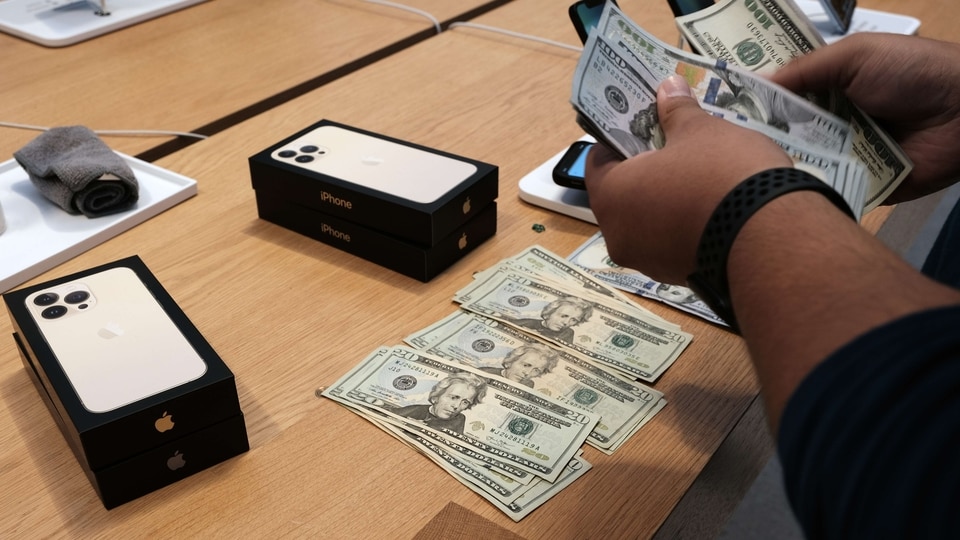Apple iPhone 12 manufacturing unit hit by food poisoning; protests erupt
Dozens or protesters were released after an Apple iPhone 12 manufacturing unit, run by Foxconn, was hit by food poisoning.

Police have released dozens of those detained for blocking a key highway in a protest against food poisoning at a Foxconn unit, the country's second instance of unrest at an Apple Inc supplier factory in a year. The highway was blocked for hours in the southern city of Chennai in Tamil Nadu state, home to a plant where the Taiwan contract manufacturer, formally known as Hon Hai Precision Industry Co Ltd, began assembling the iPhone 12 this year.
India is among the countries, such as Mexico and Vietnam, that are becoming increasingly important to contract manufacturers supplying American brands as they try to minimise the impact of the trade war between China and the United States.
It was not immediately clear if production was disrupted by the protests sparked by last week's food poisoning incident that led to 150 employees being admitted to hospital.
Foxconn declined to comment. Apple did not immediately respond to an email seeking comment.
A police official said plant workers and their relatives were among those who blocked the highway linking Chennai to India's technology hub of Bengaluru.
While the nearly 70 women detained over Saturday's protest were released the following day, some of the 22 men held were arrested, added the official, who sought anonymity as he was not authorised to speak to media on the issue.
Most of Foxconn's workers in India are women.
In December last year, thousands of contract workers at a factory owned by Apple supplier Wistron Corp destroyed equipment and vehicles over the alleged non-payment of wages, causing damages estimated at $60 million.
Apple seeks dismissal of India apps market antitrust case, cites tiny market share
Apple seeks dismissal of India apps market antitrust case, cites tiny market share
The filing was made after the Competition Commission of India (CCI) started reviewing allegations that Apple hurts competition by forcing app developers to use its proprietary system which can charge commissions of up to 30% on in-app purchases.
Apple denied the allegations in its filing to the CCI and stressed that its market share in India is an "insignificant" 0-5%, while Google commands 90-100% as its Android operating system powers most other smartphones.
"Apple is not dominant in the Indian market ... Without dominance, there can be no abuse," Apple said in the submission dated Nov. 16 which was signed by its Chief Compliance Officer, Kyle Andeer.
"It has already been established that Google is the dominant player in India," it added.
Apple and the CCI did not respond to a request for comment. A spokesperson for Alphabet Inc's Google declined to comment when asked about Apple's assertions in the filing.
The complainant in the case, a little-known non-profit group called "Together We Fight Society", said that Apple with iOS dominates the market for non-licensable mobile operating systems.
Apple countered that in its filing, saying the entire smartphone market - which includes licensable systems like Android - is the market that should be taken into consideration.
Apple also described the Indian complaint as a "proxy filing" in its CCI submission, saying that the complainant was "likely acting in concert with parties with whom Apple has ongoing commercial and contractual disputes globally and/or that have complained to other regulators."
The U.S. tech company did not give any evidence in its submission to support its claim. The non-profit told Reuters that Apple's remark was "made to prejudice the mind" of the CCI "without any iota of proof."
In the coming weeks, the CCI will review Apple's response to the allegations and could order a wider investigation or dismiss the case altogether if it finds no merit in it. Details of CCI investigations are not publicly disclosed.
The CCI is separately conducting an investigation into Google's in-app payment system as part of a broader probe into the company after Indian startups last year voiced concern.
Apple's iOS powered about 2% of 520 million smartphones in India as of end-2020 with the rest using Android, according to Counterpoint Research, though it adds that Apple's smartphone base in the country has more than doubled in the last five years.
GLOBAL ISSUE
Apple has been grappling with similar allegations in other parts of the world. In the United States, it is locked in a legal battle with Fornite creator Epic Games over the issue and South Korea this year became the first country to ban dominant app store operators from forcing developers to use their payment systems.
In the European Union, regulators last year started an investigation into Apple's in-app fees for distribution of paid digital content and other restrictions.
Companies like Apple and Google say their fees cover the security and marketing benefits their app stores provide.
In its CCI filing, Apple argued that the in-app commissions it charges are "not unfair or excessive" and have decreased over time, adding that it charges lower rates from small developers.
"Only a small number of large developers, many of which are multi-billion-dollar conglomerates, pay the headline rate of 30%," Apple said.
"Competing platforms have charged similar or higher commissions as Apple. Particularly, Google has charged a 30% commission on its app store," it said.
Catch all the Latest Tech News, Mobile News, Laptop News, Gaming news, Wearables News , How To News, also keep up with us on Whatsapp channel,Twitter, Facebook, Google News, and Instagram. For our latest videos, subscribe to our YouTube channel.


























